Category T-Shirt
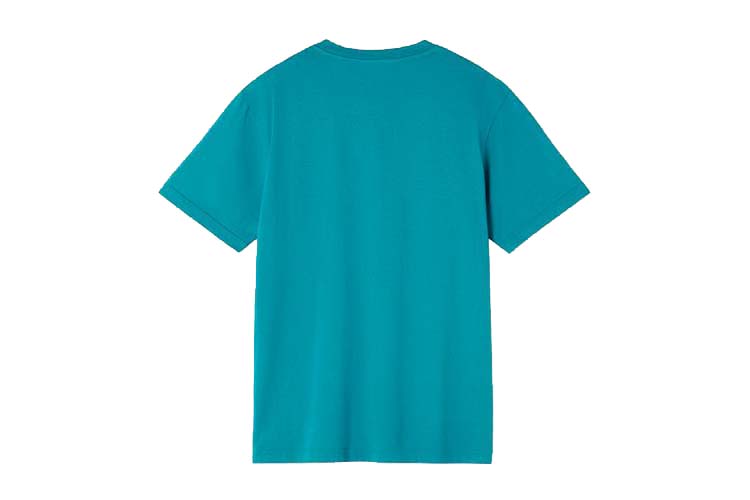
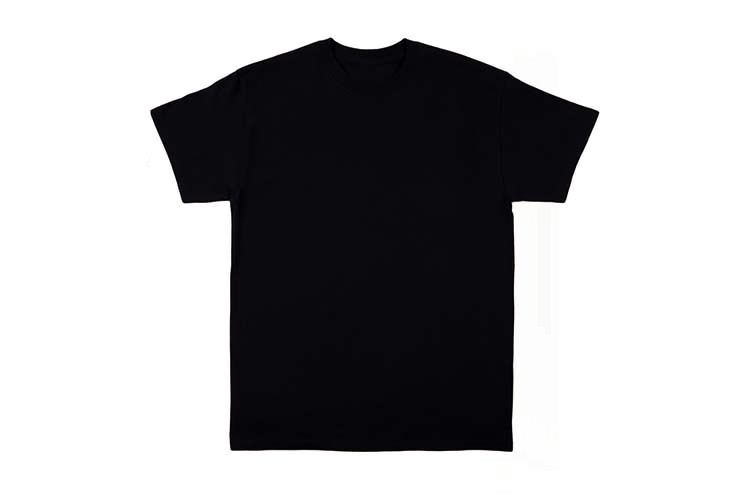
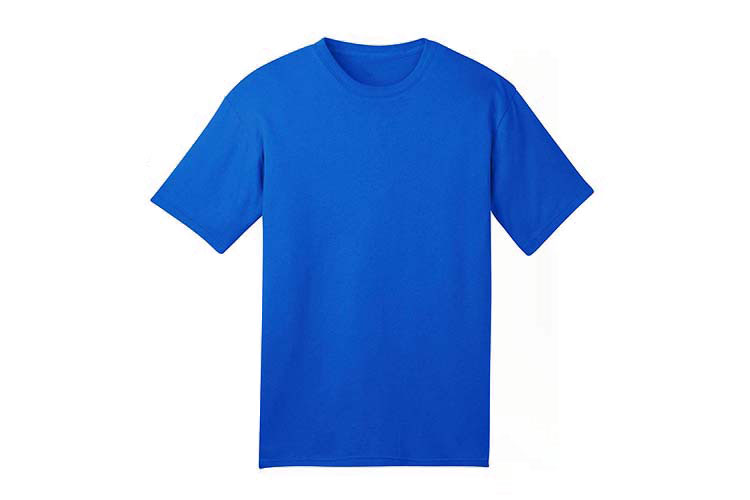
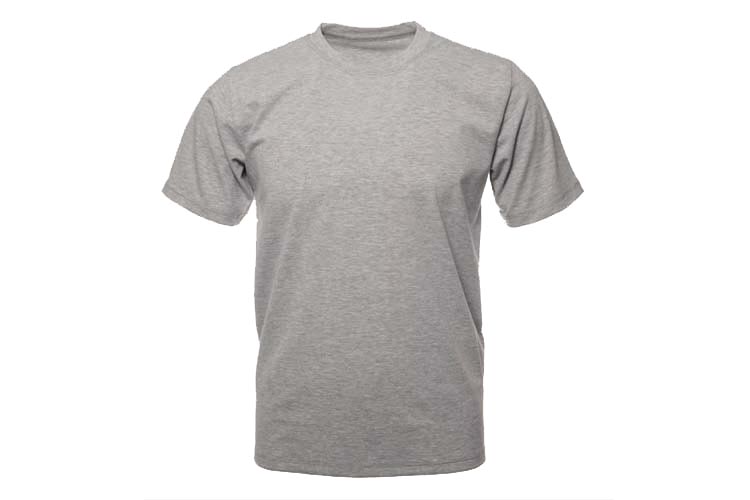
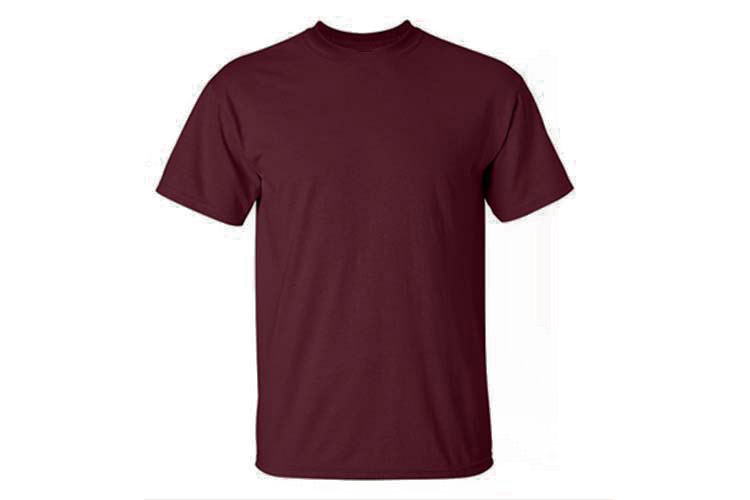
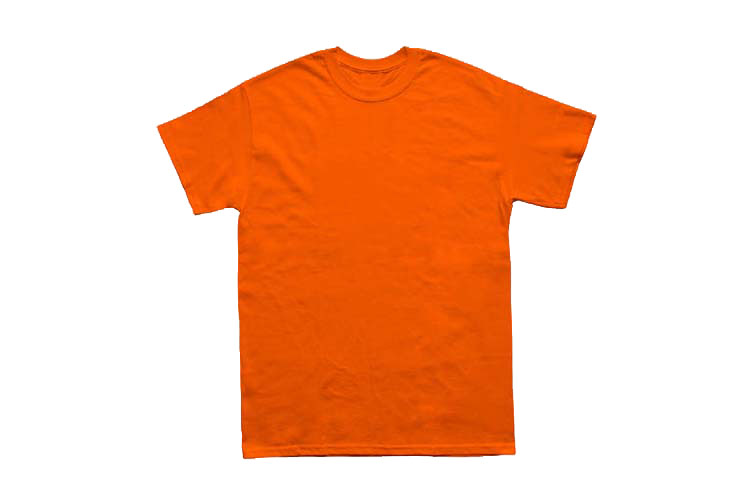
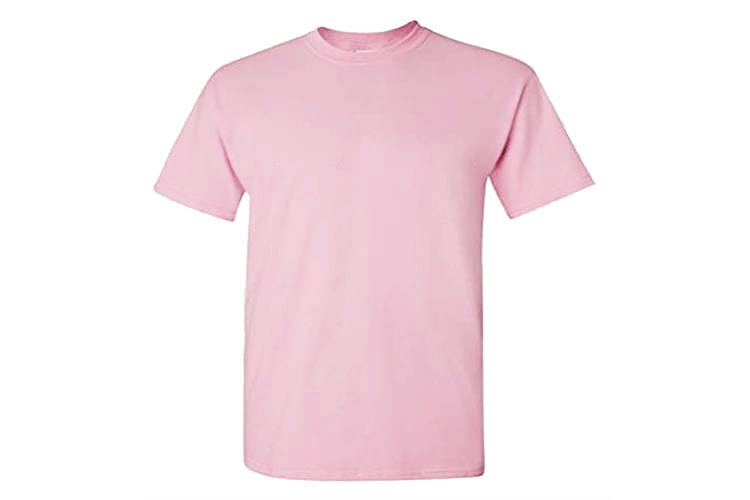
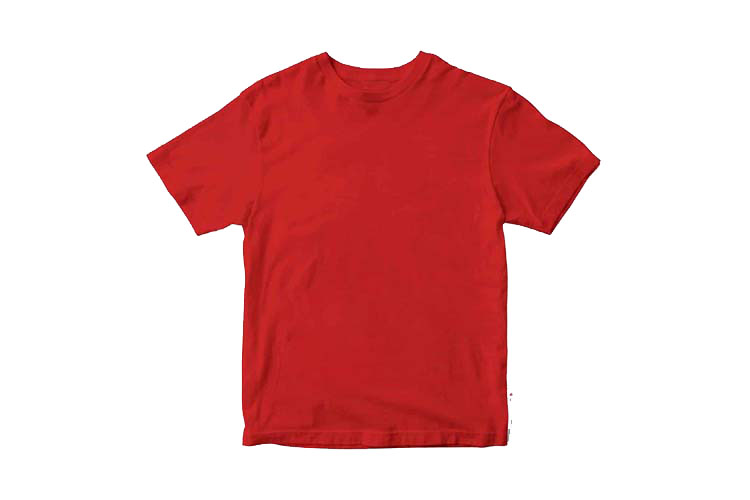
What is Cotton Tshirt
A cotton T-shirt is a type of clothing made primarily from cotton fabric. It is a popular and versatile piece of casual attire that is known for its comfort and breathability. Cotton T-shirts are characterized by their short sleeves and a round neckline, although there are variations with different necklines and sleeve lengths. Cotton is a natural fiber that is derived from the cotton plant’s fluffy seed fibers. It is widely used in textile production because of its softness, absorbent qualities, and comfort. Cotton T-shirts are commonly used for everyday wear, as they are suitable for various activities, such as lounging, exercising, or as a blank canvas for printing graphics or designs. Cotton T-shirts come in various styles, colors, and designs and are a staple in most people’s wardrobes due to their comfort and versatility. They can be worn on their own or layered with other clothing items to create different looks and serve various purposes.
Types of Tshirt
Round neck cotton T-shirts, often referred to as crewneck T-shirts, come in various styles and designs to cater to different preferences and needs. Here are some common types of round neck cotton T-shirts:
Classic Crewneck T-shirt: This is the most basic and common type of round neck T-shirt. It features a round neckline and short sleeves. It’s a versatile and timeless choice suitable for everyday wear.
V-neck T-shirt: While not a traditional round neck, V-neck T-shirts have a neckline that forms a “V” shape. They offer a variation on the classic crewneck style and can be more flattering for some individuals.
Ringer T-shirt: Ringer T-shirts have contrasting color bands on the collar and cuffs, which give them a retro and sporty look while still maintaining the round neckline.
Pocket T-shirt: These T-shirts have a small chest pocket on one side, adding a functional and stylish element to the classic crewneck design.
Raglan T-shirt: While the body of the T-shirt is in the classic round neck style, raglan T-shirts feature sleeves that extend in one piece up to the collar, creating a diagonal seam that runs from the underarm to the collar. This design is often seen in baseball-style shirts.
Organic Cotton Crewneck T-shirt: These T-shirts are made from organic cotton, produced without synthetic pesticides and fertilizers. They adhere to more environmentally friendly and sustainable practices.
Pima Cotton Crewneck T-shirt: Pima cotton is a premium cotton variety known for its exceptional softness and durability. T-shirts made from Pima cotton are of high quality and comfort.
Supima Cotton Crewneck T-shirt: Supima cotton is another luxury cotton variety, known for its extra-long staples, softness, and durability. Supima T-shirts are often considered top-tier in terms of quality.
Heavyweight Crewneck T-shirt: These T-shirts are made from thicker and more durable cotton fabric, making them suitable for colder weather or for a rugged, workwear look.
Slim Fit Crewneck T-shirt: These T-shirts are tailored for a snug and modern fit, providing a more stylish and fitted appearance.
Regular Fit Crewneck T-shirt: Regular fit T-shirts offer a looser, more relaxed fit for comfort and ease of movement.
Long-sleeve Crewneck T-shirt: These T-shirts have long sleeves and are ideal for cooler weather. They can be worn on their own or layered under other clothing.
What is cotton bio wash tshirt
A bio-wash T-shirt, also known as bio-enzyme wash T-shirt, is a type of clothing item that has undergone a specific treatment during the manufacturing process. Most brand are made of this fabric, men and women both can wear bio wash t-shirt. The term “bio-wash” refers to a finishing technique used to enhance the fabric’s softness, reduce pilling, and improve the overall texture of the T-shirt.
Here’s how the bio-wash process typically works:
Enzyme Treatment: During the manufacturing process, the T-shirt is treated with natural enzymes, such as cellulase or protease enzymes. These enzymes break down and remove the excess fibers and impurities on the surface of the fabric. This not only softens the fabric but also helps in achieving a smoother and more uniform texture.
Pilling Reduction: One of the key benefits of bio-washing is the reduction of pilling. Pilling occurs when short, loose fibers on the fabric surface become entangled and form small, undesirable balls or “pills.” The enzyme treatment helps to minimize this effect, making the T-shirt more durable and comfortable to wear.
Color Retention: Bio-washing can also help improve the color retention of the T-shirt. By removing excess dyes and impurities, the colors are more likely to remain vibrant and fade less with each wash.
Softness: The primary objective of bio-washing is to enhance the softness of the fabric. After the treatment, the T-shirt feels smoother against the skin, making it more comfortable to wear.
Bio-wash T-shirts are popular because they offer improved comfort, durability, and a more refined texture. The process is considered more eco-friendly than some traditional garment treatments because it uses natural enzymes instead of harsh chemicals. Bio-washing can be applied to various types of fabrics, including cotton, which makes bio-wash cotton T-shirts a common choice for those seeking a softer and more comfortable clothing option.
Tshirt manufacturing Process
The T-shirt manufacturing process typically involves:
-
Designing: Create a detailed design, specifying colors, logos, and any other elements.
Material Selection: Choose the fabric type (cotton, polyester, etc.) and weight that suits your design and target market.
Pattern Making: Develop patterns based on your design to serve as a guide for cutting the fabric.
Cutting: Cut the fabric according to the patterns. Precision is crucial here.
Printing/Embroidery: Apply any designs or logos onto the fabric if needed.
Sewing: Assemble the cut pieces together, including attaching sleeves and creating the neckline.
Quality Control: Inspect each T-shirt for defects or inconsistencies in stitching, printing, and overall quality.
Labeling and Packaging: Add labels and pack the T-shirts according to your branding.
Distribution: Ship the T-shirts to your intended markets or retailers.
Types of cotton tshirt fabric are used to manufacture round neck tshirt
When selecting round neck cotton fabrics for t-shirts, there are several types to consider, each with its unique characteristics, benefits, and uses. Here are the main types:
- Combed Cotton
– Characteristics: Combed cotton is made by further treating the cotton fibers to remove shorter strands and impurities, leaving only the long, straight fibers.
– Benefits: Softer, stronger, and more durable than regular cotton.
– Uses: High-quality t-shirts, luxury garments.
Ringspun Cotton
– Characteristics: Ringspun cotton is created by twisting and thinning the cotton strands, making a finer, stronger, and softer yarn.
– Benefits: Smooth texture, increased durability, and softness.
– Uses: Premium t-shirts, fashion apparel.
Organic Cotton
– Characteristics: Organic cotton is grown without synthetic pesticides or fertilizers, following environmentally friendly practices.
– Benefits: Eco-friendly, hypoallergenic, soft, and comfortable.
– Uses: Sustainable clothing, baby wear, high-quality t-shirts.
Pima Cotton
– Characteristics: Pima cotton is a type of extra-long staple (ELS) cotton known for its exceptional softness and strength.
– Benefits: Very soft, durable, and resistant to pilling.
– Uses: Luxury t-shirts, high-end apparel.
Supima Cotton
– Characteristics: Supima is a trademarked variety of Pima cotton grown in the United States, known for its superior quality.
– Benefits: Extremely soft, strong, color retention, and less prone to shrinkage. – Uses: Premium t-shirts, fine clothing.
Slub Cotton
– Characteristics: Slub cotton has a unique texture with slight lumps and imperfections due to the uneven twisting of the yarn.
– Benefits: Adds a vintage, textured look to the fabric, breathable, lightweight.
– Uses: Casual t-shirts, fashion-forward apparel.
Jersey Knit Cotton
– Characteristics: Jersey knit is a common fabric for t-shirts, known for its stretch, softness, and comfort. It is made using a single knit construction.
– Benefits: Comfortable, flexible, easy to care for.
– Uses: Everyday t-shirts, sportswear, casual wear.
Cotton-Polyester Blends
– Characteristics: A blend of cotton and polyester fibers, often in varying ratios (e.g., 50/50, 60/40).
– Benefits: Combines the softness of cotton with the durability and wrinkle resistance of polyester, less shrinkage.
– Uses: Versatile t-shirts, activewear, everyday clothing.
Bamboo Cotton
– Characteristics: A blend of bamboo fibers and cotton, offering a soft, silky feel.
– Benefits: Eco-friendly, naturally antibacterial, moisture-wicking, very soft.
– Uses: High-end t-shirts, sustainable apparel.
Tri-Blend (Cotton, Polyester, and Rayon)
– Characteristics: A blend typically consisting of 50% polyester, 25% cotton, and 25% rayon.
– Benefits: Super soft, lightweight, and stretchy, with a vintage look.
– Uses: Fashion t-shirts, casual wear, and lifestyle apparel.
-
Looper knit : Looper knit cotton, often referred to as French terry or loopback cotton, is a versatile fabric commonly used in t-shirts, sweatshirts, and other casual wear. Here’s a detailed overview of looper knit cotton t-shirts:Characteristics of Looper Knit Cotton Texture: One side of the fabric is smooth, while the other has uncut loops or piles of yarn.Softness: Generally soft and comfortable against the skin, with the looped side providing a plush feel.Breathability: Good air circulation due to the knit structure, making it comfortable to wear.Moisture Absorption: The loops can help with moisture absorption, making the fabric suitable for active wear.
– Production Process Knitting: The fabric is knitted in a way that creates loops on one side. This is done using a circular knitting machine.Finishing: The fabric may be brushed or treated to enhance softness and comfort.
Tips for Successful Cotton T-Shirt Printing High-Quality
- Designs: Use high-resolution images (300 DPI) to ensure sharp and clear prints.
Color Management: Calibrate your printer and monitor to achieve accurate color matching.
Fabric Quality: Choose high-quality cotton t-shirts to enhance print quality and durability.
Pre-Treatment: For DTG printing, pre-treat the fabric to ensure better ink adhesion and color vibrancy.
Testing: Conduct test prints to fine-tune settings and ensure the desired outcome before mass production.
Care Instructions: Advise customers on proper washing and drying methods to extend the life of the print (e.g., wash inside out, cold water, gentle cycle, no bleach).
Bulk Order are consider as wholesale Order
When looking to purchase round neck cotton t-shirts in wholesale, there are several factors to consider to ensure you get the best quality and value for your needs. Here are some tips:
Factors to Consider:
Fabric Quality: Look for 100% cotton for comfort and breathability. Combed and ring-spun cotton are preferable for a softer, more durable shirt.
Weight: The weight of the fabric, measured in GSM (grams per square meter), can indicate the thickness and quality. Common weights range from 120-200 GSM, with higher weights being thicker and more durable.
Fit: Consider whether you want a standard, fitted, or relaxed fit, depending on your target audience.
Color Options: Ensure the supplier offers a range of colors if variety is important.
Printing Compatibility: If you plan to add designs, make sure the t-shirts are compatible with your printing method, whether it’s screen printing, DTG, or heat transfer.
Cost: Compare prices from different suppliers and consider the balance between cost and quality.
Minimum Order Quantity (MOQ): Wholesale suppliers often have a MOQ. Ensure it aligns with your needs.
Customization: Check if the supplier offers customization options if you need custom labels or tags.